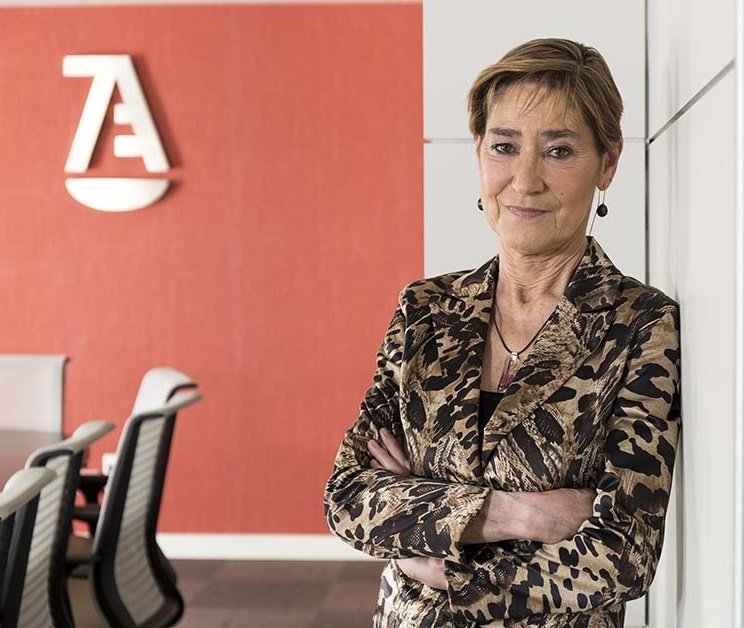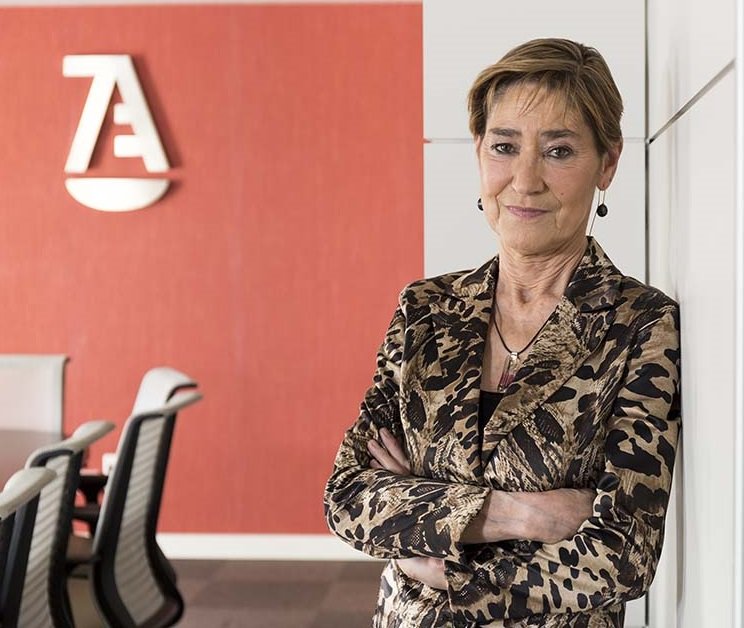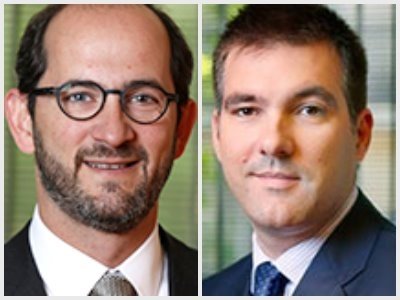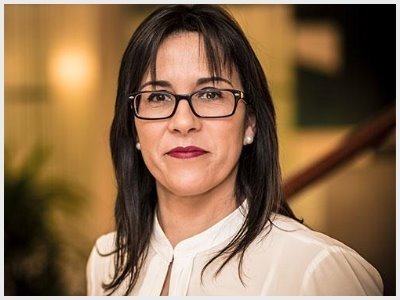Unity from diversity

Victoria Ortega could not be absent from this special issue dedicated to women in the legal sector. She has been and still is the first woman to chair the highest institution of the legal profession in our country, the General Council of Spanish Lawyers

Last January, Victoria Ortega Benito was re-elected president of the General Council of Spanish Lawyers by an absolute majority, obtaining 72.5% of the votes of the deans of the 83 Bar Associations, compared to the 17 votes (21.25%) obtained by Javier García Pascual, former dean of the Alava Bar Association, and the 3 votes (3.75%) obtained by Manolo Hernández, dean of the Sabadell Bar Association. During her inauguration, Victoria Ortega stressed that her re-election was a recognition of the collective work carried out over four years, a period during which, as Ortega recalled, the Code of Ethics was approved and the official Duty Lawyer Service rates in the Ministry of Justice were revised upwards, despite the fact that “they are still exiguous”. The monthly payment was also achieved and the attempt to privatize Free Legal Assistance through the imposition of VAT on this service, so fundamental in the defense of the rights of resourceless citizens, was suppressed.
Victoria, what challenges would you like to achieve during the new term? Or, in other words, what challenges do you still have to meet that you would like to take up now?
Due to the political situation of these years, the challenges that we have faced and the projects that we have drawn up have not been able to materialize into a normative reality. We have pending issues, and we are going to face them with renewed enthusiasm: the elaboration of an Organic Law of the Right to Defense, the approval of the General By-Law of the Spanish Lawyer, the reform of the Law of Access to the Profession of Lawyer or the modification of the Law of Civil Procedure to guarantee the suspension of trials in cases of maternity or serious illness and the digital disconnection to put all professionals, workers and government employees on the same level during vacation periods.
You have asked for “unity from diversity”. Do you think that the legal profession is sufficiently cohesive? Are there fractures? If so, from your point of view, what could be the cause?
I have always defended and worked so that we act in a united way in the main issues for the defense of the profession, as it happened with the repeal of the judicial taxes or the elimination of the VAT in the Duty Lawyer Service. It is very important that we remain united on key issues, but always with absolute respect for diversity and the different sensibilities of the 83 Bar Associations which, in the General Council of Spanish Lawyers plenary sessions, enrich the decision-making process.
Does the arrival of foreign firms and new business models such as the “on demand lawyer” in our country represent, from your point of view, an opportunity or a threat?
The disruptive change through the incubation of a new business model such as the “on demand lawyer” is an opportunity for legal professionals, provided they act scrupulously in compliance with the pillars of our profession: independence as a requirement of the rule of law, a relationship with the client based on trust and compliance with confidentiality based on professional secrecy.
On March 8th we celebrate International Women’s Day. You are the first woman to chair the General Council of Spanish Lawyers. How can you sum up your experience heading this institution from a gender perspective?
It has been and will continue to be a very exciting and rewarding experience. In 2018, we dedicated the Annual Conference and the Human Rights Awards to equality. As a result of this commitment, an Equality Commission was set up last year within the General Council. Its purpose is to respond to the logical process of relevance that equality has assumed over the last few years in the work and strategy of the Council and which has taken on, with the creation of this Commission, a new impulse. March 8th is not only an important day for all women, but also for a society such as ours, which cannot be considered democratic or make progress if the rights of half of its population are not respected. It is true that we have made a great deal of progress in this area, but there is still a long way to go to achieve real equality. Equality is a cultural issue, and its absence has as its most relevant consequence the loss of the talent of half the population. The legal profession is making an enormous effort to travel the road to equality, with – apart from the creation of the Equality Commission – the implementation of studies and surveys to find out the reality and the implementation of Equality Plans and specific measures to achieve it.
Digital transformation is a necessary step that all sectors are experiencing, including the legal profession. In this sense, what is your assessment of this evolution? Are there different speeds?
In the National Congress of Spanish Lawyers, held last year in Valladolid, we bet and are still working to move from law practice in transformation to a transforming law practice. It is very important to look for and offer solutions to advance in the technological transformation, as well as in the relevance of collaborating, cooperating and sharing experiences in this area, in which progress is being made at great speed. The General Council is committed to a legal profession in the vanguard of the implementation of new technologies and is a defender of equality of arms and tools among its more than 153,000 lawyers. Since last December, we have taken an important step forward with the launch of the New Lawyer’s Services Portal. which provides all lawyers with the services, training, news and publications that will help them in their professional practice. In the new portal and from a single access, all the services are grouped together so that colleagues can use them more easily: from prison visit applications to prevention of money laundering through RegTel and DocuShare to digital library, training, census, news, Information on Bars, etc.
For some years now, the modernization and implementation of new technologies in the Administration of Justice has been taking place. Do you think it is being developed at an adequate speed? In this regard, and from your point of view, what are the top priorities that the Ministry of Justice should address?
The digital transformation of Justice in Spain is positive and fundamental for professionals and for citizens, but it is necessary to complete it and it has to work. What is needed is that it works. With the investment that has been made, both financially and personally, not only by the State, but also by the legal profession and each of the law firms, which have made a great effort in terms of technological investment, it must now work. We demand it. The investment that has to be made must be made, because the digital transformation is positive, but it must be completed and it must work.
What do you think about the appointment of the new Minister of Justice, Juan Carlos Campo, and the appointment of former Minister Dolores Delgado as Attorney General?
About the new Minister, I have to say that after the meeting we had at the General Council of Lawyers´ headquarters in one of Juan Carlos Campo’s first public events, the impression is very positive and hopeful. The Minister showed that he is absolutely aware of all the issues that the legal profession has pending and has committed himself to addressing these issues immediately. Regarding Dolores Delgado, if the General Council of the Judiciary has indicated that her appointment as Attorney General is in accordance with the law, I have nothing more to add.
Are duty lawyers´ rates still an important workhorse for the sector, and is free legal aid still in danger?
During my first term as President, the institutional legal profession managed to revise in-court representation service in the Ministry of Justice upwards and we continue to work to improve its compensation and the dignity of the work carried out throughout Spain by its more than 46,100 lawyers – it obtained its monthly payment and also managed to suppress the attempt to privatize free legal aid through the imposition of VAT. In the General Council of Spanish Lawyers, we are preparing the legal claim for the payment of each and every one of the services provided by the lawyers of the Duty Lawyer Service, which the Ministry of Justice refused to pay since last October despite the fact that they are appointments of lawyers made by the judges. I am confident that the in-depth knowledge of the functioning of Justice by the new Minister, Juan Carlos Campo, will play a decisive role in favour of the interests of the lawyers on duty which, it should not be forgotten, are the interests of the citizens and of the judicial system of our country itself.
To conclude, make a wish for 2020 related to the sector.
For the benefit of citizens and legal professionals, implemented solutions to the main problems that Justice has because as Concepción Arenal said: “Things are impossible while they seem so.”.
Article by Desiré Vidal
To read the article in full please download issue N.92 here












